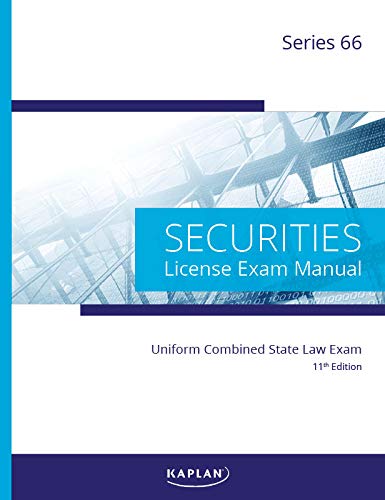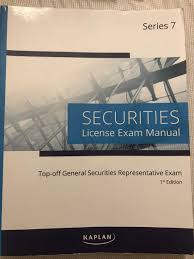CFP vs CFA vs CPA vs MBA, A Guide to the Top Certifications In The Industry of Finance
Every professional exam passed really brings with it a ton of merit to add to a resume, including things like the Series 7, Series 66, Series 9 and 10 Exams, or more professional looking exams such as the CFP Exam, the CPA Exam, the CFA Exam, and the MBA Certification. In the following blog post, I will look at the coolest certifications in the industry of Finance and Wealth Management, and will compare the CFP vs CFA vs CPA vs MBA certifications with one another, will rank them by order of their magnitude and power, and will walk you through how you can obtain each individual certification. For more information, be sure to subscribe to our blog for daily blog post updates, and comment down below with your thoughts and opinions on the article, and we’ll get back to you within one business day with a response.
Some of the most powerful and strongest performing certifications and licenses within the industry of finance for your resume include the following:
The CFA Exam
The CFP
CPA
MBA
 Series 7 License
Series 7 License
Notary Stamp
SIE Exam
Series 66 License
Collectively The Series 9 and 10 License
Series 24 license
Series 4
Series 53
And a host of other similar and related financial certifications, read on or subscribe to our blog for more details and information.
| Related Posts |
|---|
Comparing The Top Industry Certifications, The CFP vs CFA vs CPA vs MBA Exams
In terms of ranking these industry certifications, while they are all certainly very good to have under your belt, here’s how I would give strength to the credentials:
- CPA-The CPA has the most weight and power out of all of these, as they are a magician of tax and the language of business, which is accounting. Now while it depends on the accountant, many accountants have also worked in the field of Finance and have a certification like the CFP, if this is the case then you should definitely hire them, in that not only do they know their Finance, but they are a master of tax and can save you tons of money paid to the IRS by way of educating you on tax breaks. If you get this certification, you will literally always have a job also (aside from 2020 great depressions that is.)
- CFA – The CFA examination is also a good certification to have, and to me it shows that my advisor actually knows what he’s talking about. Most CFA’s are very well versed in portfolio management and in academic research and the philosophies and papers behind portfolio management. With this being said, they may still try to sell you mutual funds for the commissions, ask your CFA about index funds however and they will rollover and show their belly typically, and you’ll be in low cost index funds in no time.
- CFP – One of the weaker financial certifications in my opinion, this does show that your advisor has some type of baseline knowledge about the industry, about SEC regulations, about portfolio management, and while you may not be getting the ideal portfolio scenario with a CFP, it is a very good way to make sure you at least keep your capital.
- MBA – The worst certification in the field of business and finance. This is more of a general business knowledge and work ethic certification to employers, in that it actually ads almost no real value in terms of your skill set. I see HR professionals or Engineers that have MBA degrees all the time, Insurance Salesman get MBA degrees, people in sales or marketing etc. Good to have on a resume, but in terms of the raw knowledge it offers, there is no specialization gained here, and there is almost no value added.
Why I Would Prefer a CFA or a CPA As My Financial Advisor, But Probably A CPA
The reason for this is that a CFA certification is extremely difficult to obtain and is something along the lines of a PHD in finance in terms of the raw knowledge that it offers. Someone in the CFA society is going to be extremely knowledgeable about index funds and investing, and may be even more so than a CPA. However, they do not necessarily need this certification for this to be the case, and I have seen pure CPA’s before that have had a vast knowledge of things like why hedge fund fees are outrageous and why low cost index funds are the way to go, even without any certifications. Personally, I tend to go with the CPA, CFP certification as my preferred financial advisor of choice, in that I like to have knowledge of tax in my tool belt, like to always make sure that my bases are covered come tax time, like the added benefit of being able to have someone explain the tax implications of things like realizing capital gains in my portfolio, or reporting a $3,000 per year maximum loss for stocks sold out of my investments. Overall, the CPA is my go to choice financial professional.
Final Thoughts on The CFP vs CFA vs CPA vs MBA Exams, And Why I Have Ranked Them in Terms of Strength Like So
Each of these has a lot of power on a resume in their own merit, 3 of them show that the holder has a lot more knowledge about finance than your average bear, and 2 of them show that the individual is extremely intelligent about the world of finance and that you should listen to what they have to say. Overall, I would recommend looking for a CPA and a CFA as your financial professional of choice, and if you can find one with both a CPA and a CFA certification, hold on to them for dear life as you will have all the benefits of getting perfect investment advice for your suitability needs, as well as a better tax bottom line at the end of the day. Which of these certifications do you like the most? Comment down below or subscribe to our blog for additional details and information.
Cheers!
*Inflation Hedging.com
Sources:
https://www.bankrate.com/banking/cds/cd-rates/
https://money.cnn.com/data/markets/
Disclaimer: The opinions and documentation contained within this article and on this blog are the sole property of inflationhedging.com and are not to be copyrighted or reproduced in any manner, else legal action within the rights of the United States legal code could be use to obtain recompense. All articles and blog posts are the sole opinions of the writers of the blog, and are not necessarily in line with what exactly will work for you, you should consult a CPA, Tax Professional, or Financial Professional to determine what exact financial needs are in line with your interests. Also, from time to time, certain links on this website will be used to generate affiliate commissions, in order to support the health and growth of our website, health and business.











[…] 7 license, and if I add more financial licenses to my resume, including certifications like a CFP, that I should have an absolutely killer […]